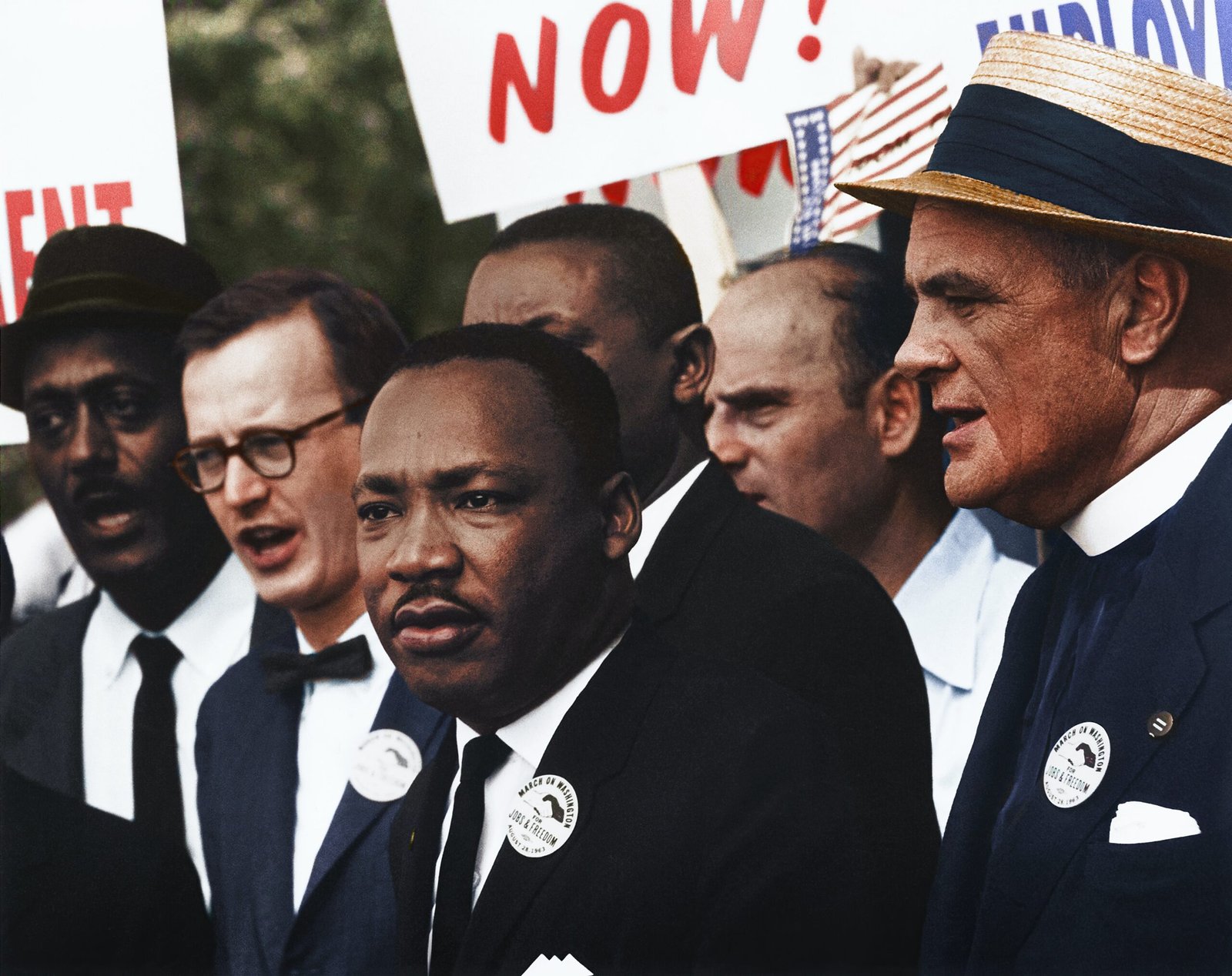On January 15, 1929, Martin Luther King Jr., a pivotal figure in the American civil rights movement, was born in Atlanta, Georgia. His birth marked the beginning of a remarkable journey that would shape the course of history and inspire generations to come.
Martin Luther King Jr. was raised in a middle-class family, with his father serving as a prominent Baptist minister. From an early age, King was exposed to the realities of racial segregation and discrimination, which deeply impacted his worldview and ignited his passion for justice.
As King grew older, he became increasingly involved in the civil rights movement. He advocated for nonviolent resistance as a means to combat racial inequality, drawing inspiration from the teachings of Mahatma Gandhi. King firmly believed that love and compassion were powerful tools for social change, and he tirelessly worked towards creating a more inclusive and equal society.
One of the defining moments in King’s journey was his leadership in the Montgomery Bus Boycott in 1955. This pivotal event was sparked by the arrest of Rosa Parks, an African American woman who refused to give up her seat to a white passenger. The boycott, which lasted for 381 days, demonstrated the power of collective action and paved the way for the desegregation of public transportation in Montgomery.
King’s influence continued to grow, and in 1957, he co-founded the Southern Christian Leadership Conference (SCLC). Through this organization, King mobilized communities and organized nonviolent protests, advocating for equal rights and an end to segregation. His commitment to nonviolence was tested time and again, as he faced violent opposition and endured numerous arrests throughout his activism.
In 1963, King delivered his iconic “I Have a Dream” speech during the March on Washington for Jobs and Freedom. Standing before a crowd of over 250,000 people, King articulated his vision for a future where racial equality would prevail. His words resonated deeply with the nation and sparked a renewed sense of hope and determination in the fight against racial discrimination.
King’s tireless efforts bore fruit when the Civil Rights Act of 1964 was signed into law, prohibiting racial segregation in public places and employment discrimination. This landmark legislation was a significant victory for the civil rights movement and a testament to King’s unwavering commitment to justice.
Tragically, Martin Luther King Jr.’s life was cut short on April 4, 1968, when he was assassinated in Memphis, Tennessee. His untimely death shook the nation and sparked widespread outrage and grief. However, King’s legacy lived on, inspiring a new generation of activists and advocates for social justice.
Today, Martin Luther King Jr. is celebrated as a national hero and his birthday is recognized as a federal holiday in the United States. His teachings and principles continue to guide the ongoing struggle for equality and justice, serving as a reminder of the power of compassion, unity, and nonviolent resistance.
In conclusion, Martin Luther King Jr.’s birth in 1929 marked the beginning of a transformative journey that would shape the course of history. His advocacy for nonviolent resistance and equality for African Americans played a central role in the fight against racial segregation and discrimination. King’s leadership in the civil rights movement, particularly his “I Have a Dream” speech, has left an enduring legacy in the ongoing struggle for civil rights and social justice. His life and work continue to inspire and remind us of the importance of standing up against injustice and fighting for a more inclusive and equal society.
SEO Excerpt:
Learn about the life and legacy of Martin Luther King Jr., a pivotal figure in the American civil rights movement. Discover how his advocacy for nonviolent resistance and equality for African Americans shaped the fight against racial segregation and discrimination in the United States. Explore the impact of his leadership in the civil rights movement, including his iconic “I Have a Dream” speech. Martin Luther King Jr.’s birth in 1929 continues to inspire and guide the ongoing struggle for civil rights and social justice.

